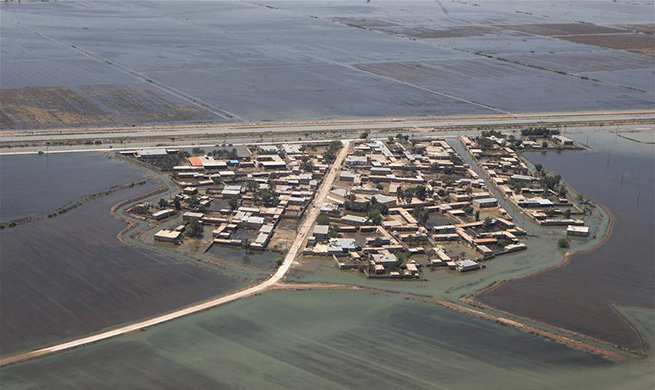JERUSALEM, April 17 (Xinhua) -- Israeli researchers have discovered that intestinal bacteria can "sense" pregnancy and undergo changes accordingly to help develop the baby, Bar-Ilan University (BIU) in central Israel reported on Wednesday.
The researchers have found that these bacteria "understand" the need to move to the next generation to assist babies in breaking down the sugar in mother's milk.
Pregnancy is accompanied by alterations in the microbiome, bacteria that live inside and on the human body and are important to health and fighting disease.
Previous researches showed that during pregnancy, microbiome is partially responsible for weight gain and for essential inflammatory response. However, the mechanisms driving these changes were unknown so far.
In the Israeli study, the researchers of BIU and Beilinson Hospital in central Israel found that the progesterone hormone regulates the microbial composition of bacterium during pregnancy, helping the baby develop.
The researchers discovered a dramatic change in the bacteria composition during late pregnancy, including an increase in the relative abundance of the Bifidobacterium which are crucial for infants.
These bacteria metabolize healthy sugars in breast milk that are important for babies' growth. The bacteria also contain probiotic capacities.
In addition, lack of increase in Bifidobacterium during pregnancy correlates with preterm delivery.
A rapid increase in Bifidobacterium was also found in experiments in mice and in vitro, leading to the conclusion that these bacteria somehow sense progesterone and reacts to it.
The researchers said that "the findings provide new insights into understanding the relationship not only between hormones and intestinal bacteriology during pregnancy, but also for other conditions in which hormones are involved, such as progesterone supplementation as a component of fertility treatments or therapy in menopausal women."

















